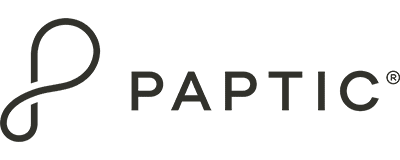Paptic and Its Alignment with the Packaging and Packaging Waste Regulation (PPWR)

The Packaging and Packaging Waste Regulation (PPWR) has made significant progress toward its adoption.
Recent Developments:
- November 28, 2024: The European Parliament approved the final text of the regulation.
- December 16, 2024: The Council gave its final approval to the regulation.
- 2025: The regulation will come into force following its publication in the Official Journal of the European Union.
The PPWR is a transformative step toward sustainability in packaging within the EU. Its core goals include reducing packaging waste, promoting recyclable and reusable materials, and advancing the use of sustainable materials. Paptic’s innovative solutions align perfectly with these objectives, making them a natural fit for companies looking to comply with the regulation.
How Paptic Supports PPWR Compliance
1. Recyclability
Paptic@ materials are recyclable with paper board, directly supporting the PPWR’s goal for all packaging to be recyclable by 2030.
Companies using Paptic solutions can ensure their packaging meets recyclability criteria without interfering with current recycling systems.
2. Reduction in Single-Use Plastics
Renewable and wood-fibre based Paptic materials are a replacement for fossil-based single-use plastics in flexible packaging.
This directly addresses the PPWR’s mandate to phase out unnecessary single-use plastic packaging in many end-uses, e.g. electronics and hygiene packaging.
3. Bio-Based and Sustainable Materials
Paptic uses renewable raw materials from sustainable sources, supporting the PPWR’s push for bio-based and recyclable solutions.
4. Durability and Reusability
Paptic materials are lightweight yet strong, making them ideal for reusable packaging solutions, aligning with the PPWR’s targets for increasing reusable packaging systems.
5. Circular Economy Focus
Paptic’s materials are designed with the circular economy in mind, ensuring a balance between performance, recyclability, and sustainability.
Its solutions facilitate companies’ transitions to more sustainable business models.
Helping Companies Navigate PPWR Requirements
Paptic is not just a material provider; it’s a partner for companies aiming to meet or exceed the PPWR’s requirements and their set sustainability targets. By choosing Paptic, businesses can:
- Easily adopt materials that are replacing plastics in flexible packaging for their packaging needs, and are recyclable at scale with paper boards in existing collection and sorting streams
- Meet sustainability targets through reducing environmental impacts
- Showcase their commitment to sustainable packaging and align with evolving consumer expectations.

Future-Ready Solutions for PPWR Compliance
The Packaging and Packaging Waste Regulation (PPWR) is expected to be adopted by late 2024 and will take effect in early 2025. Delegated acts, such as recyclability standards for paper packaging, will follow and be gradually implemented starting in late 2025 or early 2026. Full compliance with measures like the “Design for Recycling 2028” criteria is anticipated by 2028. These milestones give businesses time to adjust their packaging practices to meet the EU’s sustainability goals.
As the PPWR rolls out, businesses will face new requirements to align with the regulation. Paptic provides a forward-thinking solution, enabling companies to comply while taking a leadership role in sustainability within their industries. Together with its partners, Paptic supports the transition to a circular economy and helps achieve the EU’s vision for sustainable packaging by 2040.
Learn more at European Commission.
